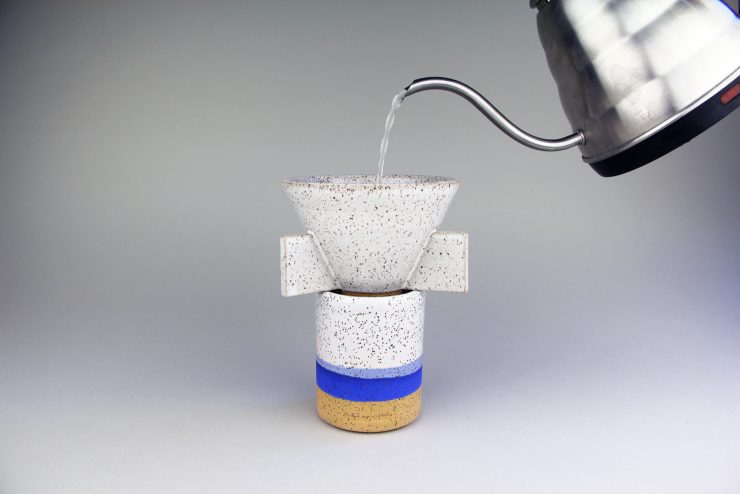
Photo: Jennica Johnstone
What’s your favorite vessel to drink coffee out of? Odds are, as a coffee lover, you probably have one.
Mine is a small cup, made by my ceramist friend Laura Cooke, fired in a salt kiln. The bottom is a luxurious blue, the top decorated in stripes. Drinking from it is part of my morning ritual, feeling its weight, being reminded of my friend every time I fill it back up. It’s as much a part of my coffee experience as the beans I grind and brew.
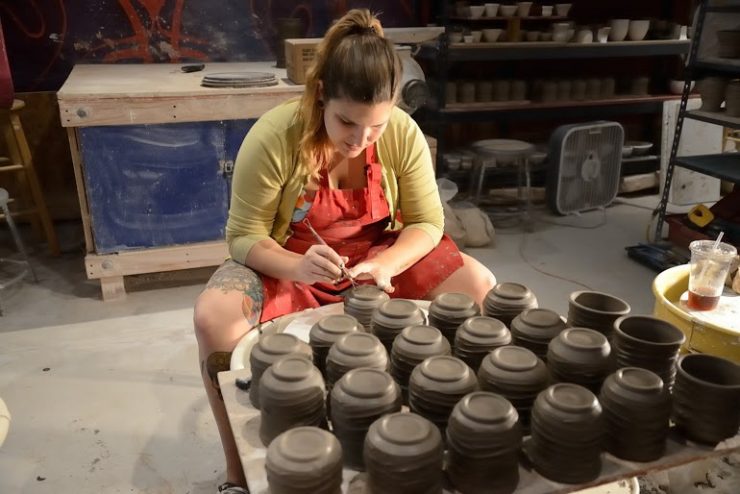
We put the emphasis on the product, but there are a lot of other elements that contribute to our enjoyment of coffee. When I walk into a new coffee shop, one of the first things I pay attention to is the mugs in use. What color are they? What’s their texture? What do the handles look like, how do they feel?
Coffee cup design is an art unto itself, but we don’t reach for a handmade cup just because of its design. “Across the board, people enjoy a story,” says Ben Medansky, a ceramist known for his use of electric blue in his designs. “We’re interested in learning the story of our coffee, about where the beans are grown and roasted, so it makes sense we’d also want to know where the cups are coming from.”
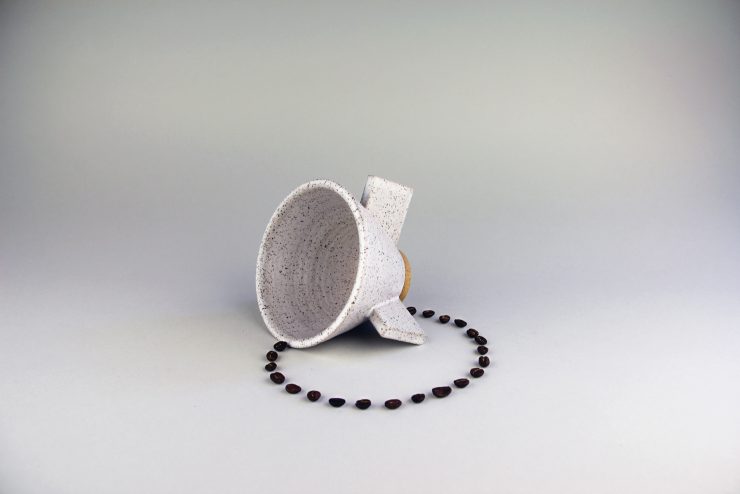
Photo: Jennica Johnstone
But it’s not just cups. There is a wide variety of handmade coffee accoutrements out there, coffee-loving designers and craftspeople finding ways to use their art to better their coffee experience. Medansky, like other ceramists, developed a pour-over system, working his way through 10 different versions before arriving at one he loved (and that worked well). If you’re in the market for a handmade brewing device, there are many options: Long Beach Dripper’s pour-over works similar to a Kalita Wave. Jim Schatz’s Brutal Coffeemaker, a stoneware carafe-style pour-over filter brewer, is along the lines of a Chemex, except far more funky. And there are even wooden pour-over systems, like the beautiful work of the UK’s Wooden & Woven, which turns out coffee cones (and much more) crafted from olivewood.
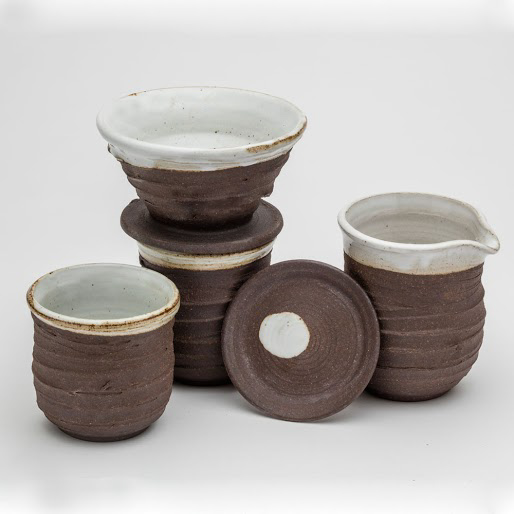
With so many quality coffee brewing devices already on the market, what drives the interest in coming up with new ones? It could have something to come from “wanting to extend the experience,” says Hugh Prysten, another ceramist with his own handmade pour-over system. Using a handmade brewing device or mug, he adds, is “a way to make people stop and appreciate what they’re drinking.”
Alex Devol of Wooden & Woven agrees. “Most people’s tastes develop through experience; in time, people become connoisseurs, and that taste transfers quite easily to other relevant things,” says Devol. “So it makes sense that somebody who is really passionate about coffee would rather drink it from their favorite mug than a paper cup.”
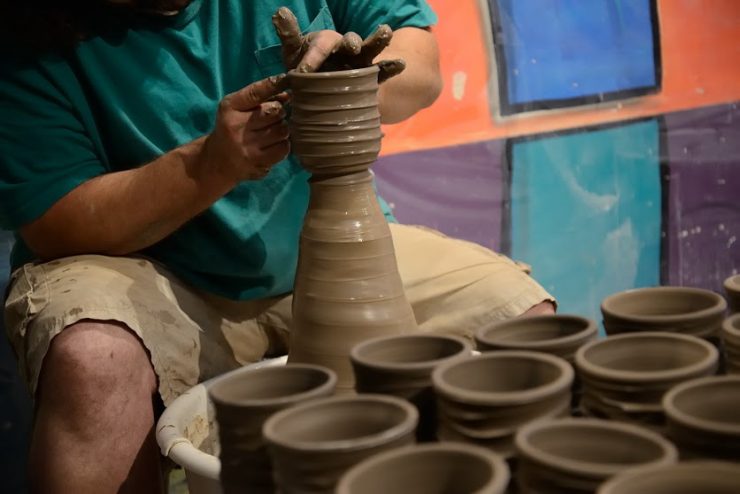
As the specialty coffee industry grows, so does the risk of standardization; the style of coffee shop that was once out of the ordinary is now becoming the new norm. That makes all the small details of a cafe even more important. All the elements of a coffee shop that are above and beyond the drink itself—cups, brewing devices, tables, chairs, even espresso machines—provide a chance to say, “We are unique.” Anyone can put a Chemex on their coffee bar, but what about a handmade brewing device that would engage the customer on an even deeper level?
“You want to start your day with a beautiful coffee experience, including the making of your first cup and the experience of drinking it,” says Schatz. For an artisan, the desire for a beautiful coffee experience can be taken a little further. Prysten points out that he embarked on developing a handmade pour-over system after asking himself, “How can I love making coffee more?” It was an easy answer: “By using my own stuff,” he says. That meant not only drinking coffee out of his own handmade mug, but developing and making a brewing device as well. While handmade mugs have become ubiquitous, handmade brewing devices are a little trickier. Devol says, “I didn’t have a V60 at the time, but I had too many mugs to count!”
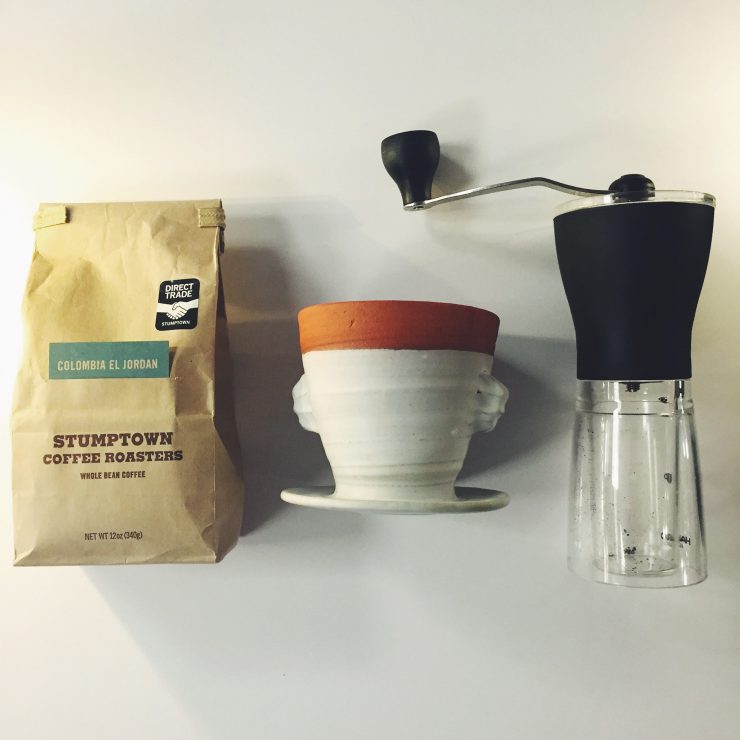
For someone who is already in the market of making things, developing a coffee brewer can be as much about aesthetics as about functionality. For Schatz, the idea for the Brutal Coffeemaker came after breaking far too many Chemexes in the studio. “We made a prototype that we used for a couple years that we finally turned into a mold,” says Schatz, easily allowing him to put the coffee brewer into production. “[Now] we can’t imagine making our pour-over any other way.”
Another path to developing a coffee brewer can involve simply improving on what’s already on the market. “We spoke to a few local roasters here in Long Beach [California]—Rose Park, Lord Windsor—about the positives and negatives of drippers on the market,” says Sarah Alonzo about the Long Beach Dripper, which she makes with her business partner, Clay Wood. “We decided our goal was to make something that was not only beautiful but simple for the average coffee drinker to use. Once we had a design, we had to develop a way to make the drippers efficiently, and decided on using a mold. We hand throw the dripper on the mold to ensure that the inside is the same every time, and the outside is always unique.”
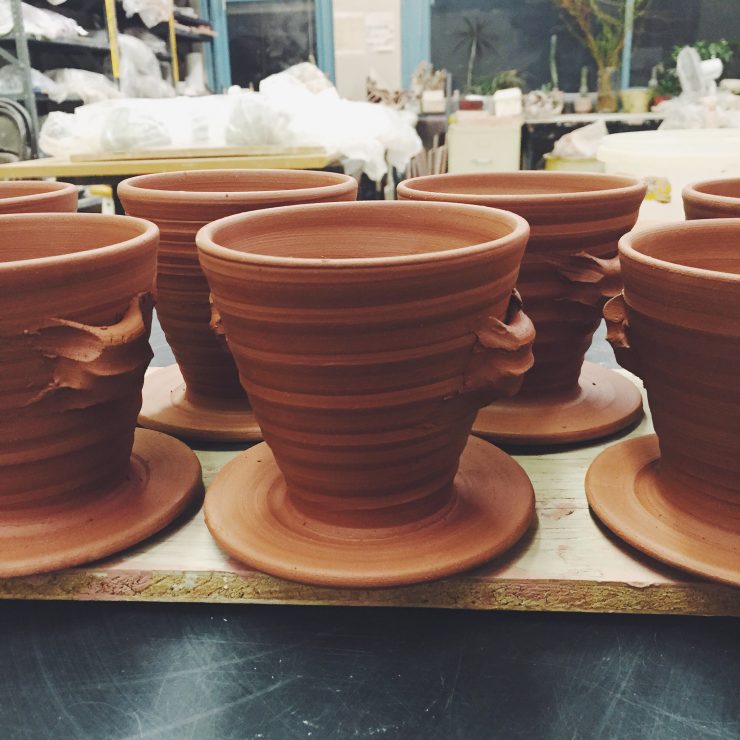
It’s not just a device’s design, but also the material used, that can make it stand out. “It makes sense that most tableware out there is ceramic, and that most utensils are stainless steel,” says Devol, who works entirely in wood. “These days, we have manufacturing means and materials to make products stronger and more durable than [what] we can achieve with wood. But it’s easy to forget that, not that long ago, these things were nearly all wooden, and in doing so we forget its benefits as a material.”
Whether you are drawn by a product’s design or functionality (or both), adding a handmade element to your coffee routine can not only heighten the experience but also remind yourself of the beauty of the product at hand. “Drinking something that has been roasted by hand out of something that [itself] has been handmade can be a humbling experience,” says Alonzo. “It can really add some personality to your morning routine.”
Anna Brones (@annabrones) is a Sprudge.com staff writer based in the American Pacific Northwest, the founder of Foodie Underground, and the co-author of Fika: The Art Of The Swedish Coffee Break. Read more Anna Brones on Sprudge.
Images courtesy Long Beach Dripper, Hugh Prysten Ceramics, J Schatz, Wooden & Woven, and Jennica Johnstone for Ben Medansky.
The post The Art Of Handmade Coffee Brewing Devices appeared first on Sprudge.

